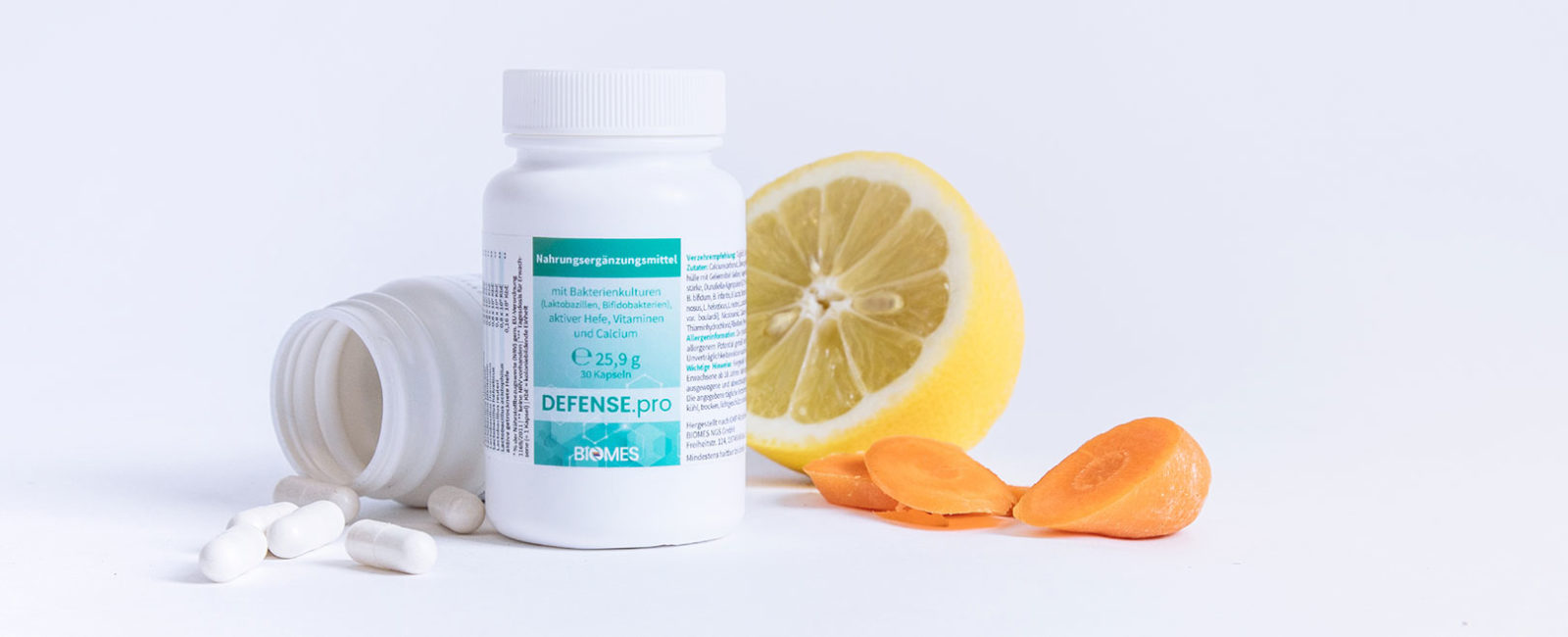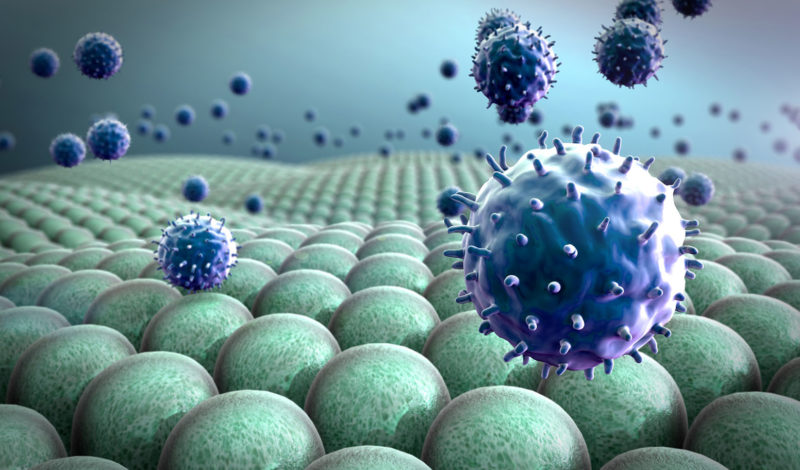"You are what you eat", "An apple a day keeps the doctor away", "Eat yourself healthy" – nutrition and the [...]

The best for the baby: Strengthening the immune system from the very beginning
At the beginning of their lives, babies are still protected by maternal antibodies. This protection slowly decreases during the first year of life – but at that time, babies’ immune systems are not yet fully developed. Find out here how you can best strengthen and support your baby’s immune system.
The immune system of newborns: Protected from the very beginning
Already during pregnancy the child’s immune system develops – but it is not yet able to fully protect the child. From the fourth month of pregnancy onwards, the child is therefore supplied with additional antibodies by the mother via the placenta. These offer the child initial protection and support the immune system in the first months after birth. The mother passes on other important antibodies to the baby via breast milk.
From birth, the child therefore has a “non-specific immune system”: this attacks all germs that have overcome the body’s anatomical barriers – i.e. mucous membranes, cilia or stomach acid. The body’s own scavenger cells absorb these germs and break them down. However, a specific defence against very specific, dangerous types of pathogens does not yet exist at this early stage.
It is only about three months after birth that the development of the “specific immune system” begins. With every illness that the baby experiences, the immunological memory now grows. Babies now need contact with different pathogens in order to build up a strong immune system. The first vaccinations are now also carried out to enable defence reactions against serious diseases.
Strengthen the immune system: Babies need moderate protection
A strong immune system can therefore develop with appropriate contact to natural germs and environmental factors. It is therefore neither possible nor particularly sensible to protect children from all risks of infection. On the other hand, you should of course not take any unnecessary risks: Some diseases that are merely unpleasant for adults can quickly become dangerous for a baby. For example, the loss of fluid during a stomach flu can have serious consequences. You should therefore avoid contact with people who have the flu. It is also advisable to protect your child with additional vaccinations. Your paediatrician will give you detailed information on this.
The immune system of infants: Everything begins with the intestine
Biologically, mothers have a decisive influence on their baby’s intestinal flora – and a intact intestinal flora strengthens the immune system.
The intestinal flora of the child is actually only formed at birth. As the baby passes through the birth canal, it absorbs the mother’s bacteria – and the bacterial colonisation of the intestine begins. The bifidus and lactic acid bacteria are the first to grow in the child’s intestine. They strengthen the intestinal mucosa and ward off the first pathogens. Under the influence of the environment and with the diversification of the diet, the gut flora finally further and further until a complete, individual microbiome has developed – and this is essential for a strong immune system.
The microbiome produces vital enzymes, supports the absorption of nutrients and neutralises pollutants and germs that are absorbed with food. The intestine is home to 80 percent of the body’s own defence cells .
Strengthen baby’s immune system right from the start: With balanced nutrition
It is particularly important for expectant mothers to maintain the balance of their own intestinal bacteria. Unless otherwise recommended from a medical point of view, you should therefore eat a balanced diet during your pregnancy and breastfeeding. A diet rich in vitamins, minerals and fibre is good for your intestinal flora – and lays the foundation for a healthy immune system in your child. You can take probiotic food supplements during pregnancy.
In the intestinal test from BIOMES, your sample will be analysed using one of the most modern biotechnological analysis methods1. Afterwards you will get a comprehensive overview of the current state of your intestinal flora and the bacteria living there. Based on the test results, the nutritional scientists* at BIOMES will also put together a personal recommendations for you, which will help you to specifically build up your intestinal flora and multiply useful bacteria in your intestine. If you want to know exactly how your intestinal flora is doing, simply send a small stool sample to the BIOMES laboratory.
More tips to give pathogens no chance
You can also do a few things in everyday life to strengthen your baby’s immune system: even bacteria that have been completely wiped out by antibiotics quickly find their way back into the intestines.
Always ensure a good indoor climate. Dry heating air in winter can irritate the mucous membranes and make it easier for bacteria and viruses to penetrate. Indoor humidity should therefore be at least 30 percent. Shock airing several times a day improves the indoor climate.
A daily walk in the fresh air is good for your child’s mucous membranes, even in bad weather. However, make sure that you wear weatherproof clothing.
While the body is resting, it produces the body’s own defence substances, which strengthen the immune system. A sufficient amount of healthy sleep is therefore important for your child’s immune system.
1. Cho I, Blaser M J. The human microbiome: at the interface of health and disease. Nature Reviews Genetics 2012:13, 260-270. https://www.nature.com/articles/nrg3182.



